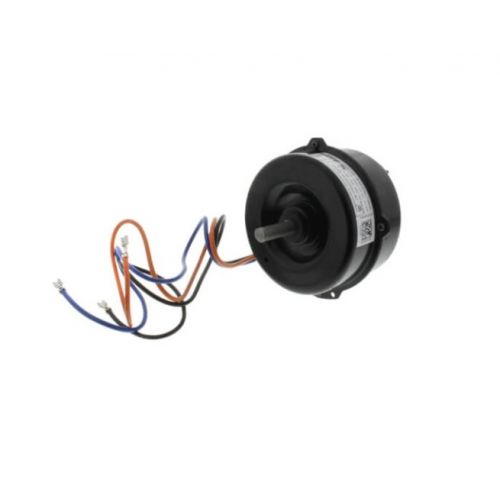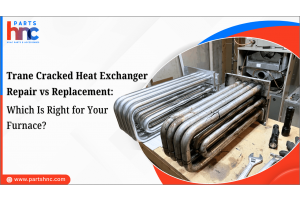How Does A Heat Pump Work In Winter
As winter's icy grip tightens, understanding the inner workings of a heat pump becomes crucial for maintaining both indoor comfort and energy efficiency. Then how do heat pumps work in cold weather? In cold climates, where frigid temperatures often dominate, the question of whether heat pumps can effectively function in these conditions arises.
This article delves into the intricate mechanisms that allow heat pumps to thrive in chilly weather, offering an eco-friendly alternative to traditional heating systems. We explore how cold climate heat pumps harness heat from the outdoor air, utilizing this energy to warm your home while consuming significantly less electricity. Discover the secrets behind their ability to operate efficiently even in the harshest winter conditions, revolutionizing the way we stay warm while minimizing our environmental footprint.
|
Table Of Contents What is a heat pump and how does it work The functioning of a heat pump in winter What to look for in a heat pump for a cold climate |
What is a heat pump and how does it work
A heat pump is a versatile heating and cooling system that operates efficiently within a specific temperature range. It utilizes the principles of thermodynamics to transfer heat from one location to another, making it an eco-friendly and cost-effective solution for maintaining indoor comfort. However, when facing extremely low temperatures, homeowners may notice their heat pump running constantly in winter to meet heating demands, which can affect overall efficiency. Heat pumps can function effectively in a variety of temperatures, but their efficiency is influenced by the heat pump temperature range.
While some models can operate efficiently in sub-zero conditions, others have a heat pump minimum temperature that limits their effectiveness. In cold weather, the efficiency of heat pumps may decrease as the temperature drops, as they must work harder to extract heat from the external environment.
To maximize heat pump efficiency in cold weather, it's essential to select a model suited to your climate and ensure proper insulation and maintenance. This way, you can enjoy energy-efficient heating and cooling year-round. Replace your heat pump parts with high-quality components from PartsHnC for reliable and efficient heating system performance. We offer wide range of HVAC parts and accessories from well-named manufacturers at cost-effective prices.
The functioning of a heat pump in winter
Heat pump efficiency in cold weather plays a pivotal role in maintaining indoor comfort efficiently. To understand its functioning during winter, it's essential to delve into the heat pump key components and the refrigeration cycle.
Evaporator Coil: This component is located outside the home and is responsible for absorbing heat from the cold outdoor air.
Refrigerant: A special fluid within the heat pump that carries heat energy. It is crucial for the transfer of heat.
Compressor: The compressor raises the temperature of the refrigerant, turning it into a hot, high-pressure gas.
Condenser Coil: This indoor coil releases the heat absorbed from the outdoor air into your home, warming it up.
Expansion Valve: It controls the flow of refrigerant, allowing it to cool and expand, preparing it for the next cycle.
The refrigeration cycle enables the heat pump to extract heat from the outdoor air, even in cold weather, and transfer it indoors, making it an effective solution for winter heating in cold climates.
Blog you might be interested in 9 different types of home heating systems
What to look for in a heat pump for a cold climate
Does your heat pump not work in cold weather? When selecting a heat pump for a cold climate, consider the following key features and technologies to ensure optimal heat pump operation in winter. These include:
Energy Star Certification: Look for the Energy Star certification mark for cold-climate heat pumps. Starting in January 2023, this mark will signify a suitable level of low-temperature performance and efficiency.
NEEP Database: Until the official standard is in place, consult the Northeast Energy Efficiency Partnerships (NEEP) database for models known to perform well in cold weather conditions.
Variable Speed Compressor: Opt for a heat pump with a variable speed compressor powered by an inverter. This technology ensures efficiency and effectiveness across a wide range of temperatures, from frigid winters to scorching summers. A heat pump with a variable-speed compressor can be especially beneficial in regions where heat pump struggles in cold weather.
Steadier Temperature Control: Variable-speed systems maintain a steadier indoor temperature and humidity level compared to traditional single-speed HVAC systems, which tend to cycle on and off frequently.
Energy Efficiency: Variable-speed models are the best cold climate heat pumps because they work at multiple speeds, similar to the accelerator on a car, thus reducing energy consumption and maintaining a consistent temperature.
Flash (Vapor) Injection: Cold-climate heat pumps use flash injection technology to enhance low-temperature heating performance. This feature helps maintain heating capacity in sub-freezing conditions, even during occasional self-defrosting cycles.
Ducted or Ductless Options: Choose between ducted and ductless heat pump systems based on your home's existing infrastructure. Ducted systems are suitable for homes with ductwork, while ductless mini-split systems work well in spaces without pre-existing ducts, such as garages or home additions. Both types offer efficient cold-weather performance, making them versatile solutions for year-round comfort.
Blog you might be interested in the cost of heat pump systems
By considering the above factors you can find the best heat pump efficiency in cold weather.
How heat pumps help you save money, even in a cold climate
When it comes to saving money in a cold climate, heat pumps can be a game-changer, and here's how:
Fuel Cost Savings: In regions where heating fuel prices, like propane or oil, are high, heat pumps can significantly reduce heating costs. These efficient systems often outperform traditional fuels in terms of cost-effectiveness, making them a compelling choice.
Energy Savings: A study from UC Davis suggests that up to 32 percent of U.S. households can save money by switching to whole-home heat pump systems, even in very cold regions. As heat pump technology advances and subsidies become more common, these savings could increase further.
Ideal for Specific Heating Sources: Homeowners relying on delivered fuels, electric furnaces, or electric baseboard radiators are among the biggest beneficiaries of heat pump cost savings.
Efficiency Improvements: While natural gas heating remains cost-competitive, heat pump efficiency continues to improve. It's not a clear winner, and individual savings depend on factors like regional climate, specific equipment, and utility prices.
Installation Costs: Heat pump systems, particularly cold-climate models, can be pricier to buy and install than other HVAC options. However, exceptions exist, with DIY-friendly models available at more affordable prices.
Home Insulation: Drafty homes can pose challenges for heat pumps, increasing installation and operation costs. Upgrading insulation and sealing gaps can mitigate these issues and offer long-term savings.
Incentives and Subsidies: Many states offer tax incentives and rebates for heat pump installations, making them a financially attractive choice. Research available subsidies in your area to maximize your savings.
Reliability: Choose a reputable heat pump brand with high predicted reliability and owner satisfaction ratings to avoid frequent breakdowns and save on maintenance costs.
Incorporating these factors, you can make a well-informed decision regarding heat pump during winter, ensuring that your investment pays off in terms of savings and comfort.
Blog you might be interested in Cost to repair a furnace
When you might need a backup heating system
A backup heating system can be beneficial in regions where occasional cold snaps occur, even in milder climates. However, modern heat pumps, appropriately sized and suited for your home and climate, can often handle cold weather efficiently without the need for backup systems. Many heat pump owners we spoke to never had to use their backups, even during harsh cold spells. Combining a heat pump with another heating system can offer a cost-effective and comfortable solution, saving energy compared to traditional setups. While savings vary based on home factors, a hybrid or dual-fuel system strikes a balance between cost savings and overall comfort, making a significant impact on energy consumption.
Understanding how a Heat Pump work in winter reveals its remarkable efficiency and eco-friendly nature. Heat pumps excel in maintaining comfort during cold weather, even in challenging climates. With the potential for cost savings, reduced environmental impact, and versatility, they make a compelling choice for winter heating needs. Embrace this technology and experience the warmth and efficiency it offers in the chilliest of seasons.
FAQs
Do heat pumps work below 32 degrees?
Heat pumps can work below 32 degrees, but their efficiency may decrease in very cold temperatures.
Should I turn off my heat pump in extreme cold?
It's not necessary to turn off your heat pump in extreme cold; they are designed to operate in cold weather.
At what temperature does a heat pump switch to emergency heat?
Heat pumps typically switch to emergency heat mode at around 35-45 degrees Fahrenheit.
Why is my heat pump not keeping my house warm?
If your heat pump is not keeping your house warm, check for issues with insulation, refrigerant levels, or thermostat settings.
Do heat pumps work in extreme cold?
Yes, heat pumps can work in extreme cold if they are designed for such conditions, like cold climate heat pumps, which function well below freezing.
At what temperature does a heat pump stop working?
Heat pumps typically stop working efficiently around -4°F (-20°C), though some newer models can operate at lower temperatures.
Do heat pumps stop working in cold weather?
Heat pumps can stop working in cold weather if the temperature drops below their optimal operating range, but modern cold climate models are designed for lower temperatures.
 Loyalty Program
Loyalty Program












